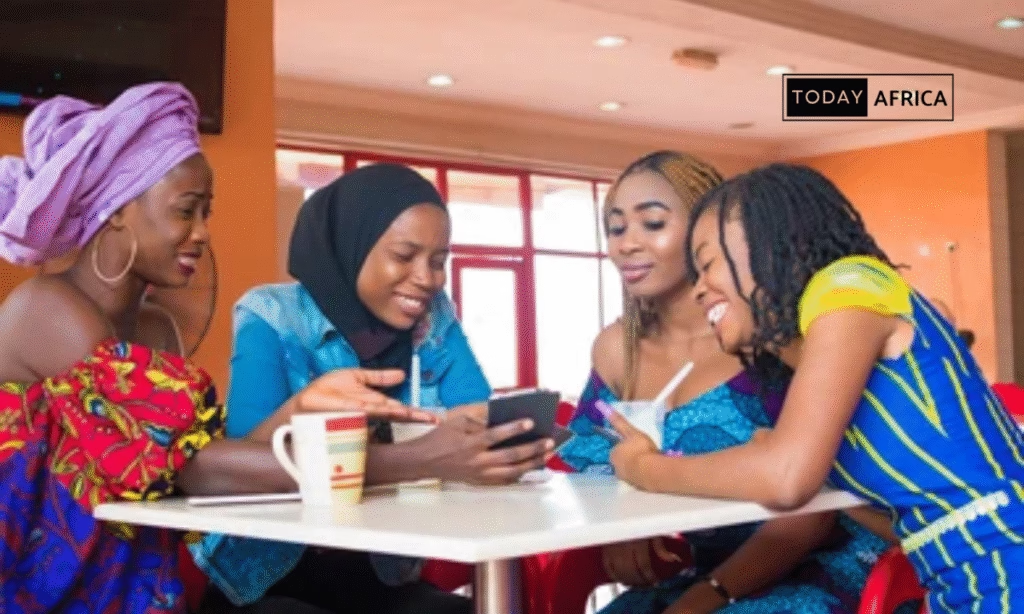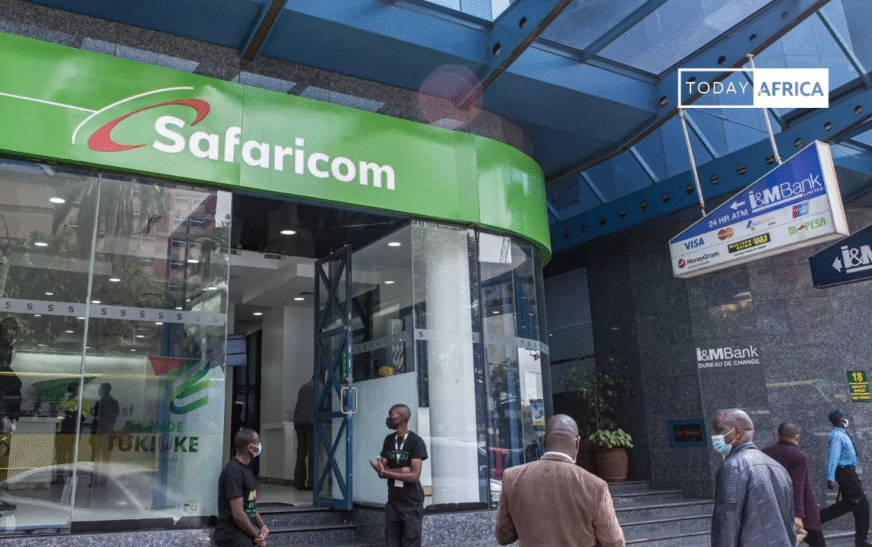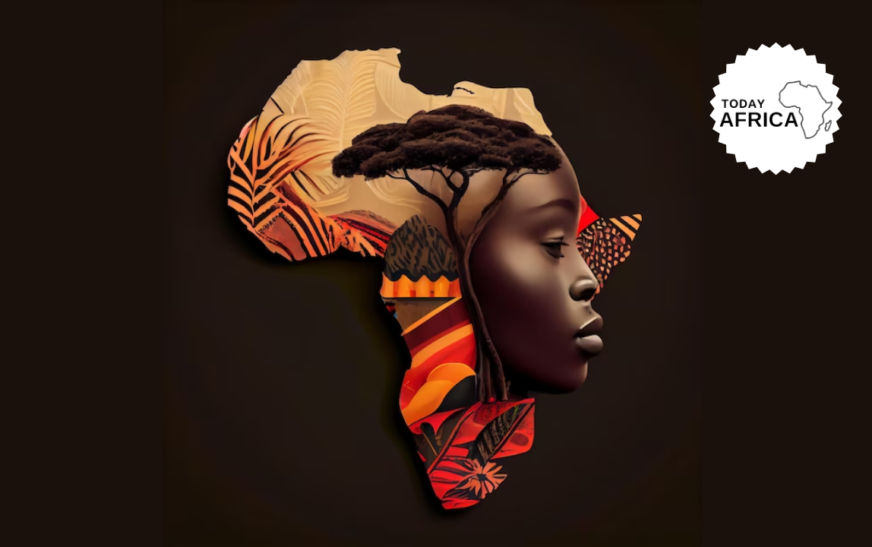The African tech ecosystem is booming. But behind the headlines of billion-dollar valuations and record-breaking venture capital lies a quieter, equally powerful story — the rise of women in tech.
For decades, women were sidelined in science, technology, and business across much of Africa due to cultural norms, limited access to education, and systemic barriers.
Yet, over the past decade — and especially since the COVID-19 pandemic accelerated digital adoption — women have been steadily reshaping Africa’s tech future.
They are building startups, leading groundbreaking companies, mentoring the next generation, and pushing for inclusivity in boardrooms and classrooms alike.
This blog post delves deep into the story of women in the African tech ecosystem, exploring the progress made, the obstacles still standing, and the inspiring stories of female innovators driving change.
Women’s Participation in African Tech Ecosystem
Representation in startups and industry
Women in African tech span a spectrum of roles – from software engineers and data scientists to startup founders – yet they remain underrepresented. For example, an ITU report notes women are only about a quarter of ICT workers in Africa.
Similarly, only about 1 in 6 African tech startups has a female founder. By some measures, the gap is even wider: one study found just 14% of African startups are led by women.
In practical terms, this means the “African Tech Ecosystem” still sees far more male leaders than female.
Nonetheless, the past decade has seen gradual gains. Disrupt Africa’s 2024 Diversity Dividend report shows the share of startups with a female co-founder rose from 14.6% (2022) to 17.3%.
Female CEOs increased from 9.6% to 11.1%. In some countries, female participation is higher: Zambia leads with 24% of tech startups having a female founder, followed by Senegal (23%) and Rwanda (22%).
Sector trends are positive too: industries like legal tech and healthtech have 23–28% female founders, far above the norm. These figures point to encouraging diversification in parts of the ecosystem.
Funding and leadership gaps
Despite more women entering tech, they still face a steep climb to equity.
The funding gap is stark: between January 2022 and mid-2024, African tech startups raised about US$6.2 billion total, but only $747 million (11.9%) of that went to companies with any female co-founder.
Ventures led by women (female CEOs) received only $289 million (4.6%) of funding. In 2023, women-led startups got just 8.2% of all tech investment, up from 2.8% the year before.
Yet even that 8.2% figure is meager: in 2024, women-led African startups raised only $48 million – roughly 2% of total VC funding. By contrast, male-founded companies raised over $2 billion that year.
In short, female entrepreneurs are securing a tiny fraction of capital.
These disparities have real impact. A majority of women founders report bias: a survey found 79% of African female tech founders felt gender discrimination in their work.
Lack of funding was cited by 55% as the biggest barrier, and many noted difficulty accessing professional networks. This “pipeline problem” means even when women start companies, they often stall due to capital shortfalls.
As TechCabal Insights notes, this has created a “weak pipeline” – without seed and pre-seed funding, many women-led startups simply never reach higher stages.
See Also: How Green Startups are Creating Jobs & Sustainable Growth in Africa
Breaking Barriers: Success Stories and Impact
Inspiring women leaders and innovators
Across Africa, trailblazing women are proving what’s possible. Their success stories show the impact of women in tech on the economy and society.
For example, Funke Opeke (Nigeria) built MainOne, West Africa’s first private undersea cable network, vastly improving internet access in the region. Opeke’s achievement earned her a spot on Forbes’ World’s Top 50 Women in Tech list.

In Nigeria’s fintech boom, Odunayo Eweniyi co-founded PiggyVest (a leading digital savings platform) and later FirstCheck Africa, a venture fund for women-led startups.
Eweniyi’s work – recognized by Forbes Africa’s 30 Under 30 and TIME100 – has empowered millions of Nigerians to save money and given capital to dozens of female entrepreneurs.
Ada Nduka Oyom (Nigeria) founded She Code Africa, a nonprofit that provides scholarships and training in coding. She Code Africa has now trained over 72,000 African women and girls in tech skills, helping to build a pipeline of young female technologists.
In Sudan, Tarneem Saeed launched ALsoug, the country’s largest online marketplace. Within a few years, she raised a $5 million round to expand digital payments in Sudan.
Meanwhile, Kenyan entrepreneur Jihan Abass founded Lami, an insurtech startup that simplifies buying insurance via mobile apps; her company raised multi-million-dollar funding to scale in East Africa.
Each of these leaders not only solves local problems (e.g. trade, finance, connectivity) but also inspires other women to follow suit.
These successes are having ripple effects. Women founders often target underserved markets: for instance, Miishe Addy of Ghana created Jetstream Africa to simplify cross-border trade for small businesses, using digital tools to cut red tape.
Their companies also tend to foster inclusive workplaces. By building diverse teams and mentorship programs, women founders uplift other female talent.
They prove that gender-diverse teams can boost innovation and profitability – research shows women-founded businesses often outperform all-male teams in revenue.
In fintech, agritech, healthtech, and beyond, African women are deploying tech to solve problems like financial inclusion and food security. Their impact underscores the potential of the African tech ecosystem when half the population is fully engaged.
Transforming industries and communities
Women in tech are not just leaders of companies; they are changemakers. In agriculture, female entrepreneurs develop apps that help rural farmers (often women) access markets or weather data.
In education, women-led startups offer online learning platforms that reach girls outside city centers. And in healthcare, women in tech are creating solutions like telemedicine for mothers and vaccine tracking.
For example, Rwanda’s Betelhem Dessie founded iCog Labs to train young Africans in AI and robotics, aiming to build the next generation of innovators.
Others advocate community skill-building: Blessing Abeng (Nigeria) co-founded Ingressive for Good, a nonprofit training 130,000+ African youth in coding and IT (with support from partners like Google).
These contributions strengthen the entire African tech ecosystem.
By addressing local needs – from payment apps to e-commerce platforms – women-led ventures are driving adoption of technology across the continent. They also create role models: seeing women succeed in tech motivates younger girls to pursue STEM subjects.
In turn, investors are taking notice of these high-impact startups; Venture firms backed by women (like FirstCheck Africa) are focusing on female founders.
In this way, women in tech are actively reshaping the African tech ecosystem – by building companies, mentoring others, and showing that African solutions can be led by women.
Challenges and Barriers
Societal and educational barriers
Despite these successes, many systemic hurdles remain. Cultural norms in some countries discourage girls from “technological” roles. African Business reports that misconceptions and even condescension still greet women in tech meetings.
Girls may be steered toward traditional careers seen as compatible with family life. Surveys by the Mastercard Foundation found that boys and girls start secondary school with equal interest in STEM, but girls’ confidence erodes higher up.
As education progresses, many girls feel they “don’t belong” in science tracks and feel pressured to choose careers that allow for marriage and family.
The result is a leaky STEM pipeline: fewer women in university engineering programs, and even fewer reaching tech leadership.
Without fixing early education gaps and biases, the pool of future women in tech stays limited.
Funding, networks, and bias
Beyond culture, practical hurdles block women’s path. The most glaring is finance. African women-run businesses (not just tech) face a massive $42 billion funding gap, according to the African Development Bank.
In tech specifically, female founders consistently struggle to raise capital. When they pitch, they often meet skeptical investors who unconsciously favor male entrepreneurs.
Many women founders report spending extra effort to prove their credibility – as Odunayo Eweniyi noted, her team had to overprepare every meeting to secure funding.
Disrespect in meetings is common: 74% of women founders felt disadvantaged in investor meetings because of their gender. This bias means even high-potential women-led ideas can be overlooked.
Another barrier is networks.
Tech is often about connections: accelerators, mentor circles, investor networks. Historically male-dominated circles can be hard for women to penetrate.
Over 37% of women founders cite a lack of professional networks as an obstacle.
Without insider referrals or mentors, scaling a startup is tougher. Some sectors also suffer from poor infrastructure (like unreliable power), which disproportionately affects smaller women-led ventures with less backup capital.
In short, gender bias, limited funding and support networks, and societal expectations all make the African tech ecosystem a challenging environment for women to thrive.
Read Also: How Startups are Leveraging AI in Africa to Drive Innovation & Growth
Empowering Women in the African Tech Ecosystem
Organizations and networks
Fortunately, there is a strong movement to change this. Across the continent, community groups and NGOs are building support for women in tech. S
She Code Africa, started by Ada Nduka Oyom, is one such community – it offers workshops, mentorship, and coding scholarships, and has reached tens of thousands of young women.
Women in Tech Africa (WiTA), founded by Ghana’s Ethel Cofie, hosts events and forums to connect female tech professionals.
Regional initiatives like the Africa Women Innovation and Entrepreneurship Forum (AWIEF) hold conferences and awards to celebrate women entrepreneurs continent-wide.
In Nigeria, Opportunities Desk and Hereconomy run mentorship and pitch programs for female founders. These networks provide training, peer support and visibility, helping women navigate barriers.
Some accelerator and VC programs specifically focus on closing the gap. For example, FirstCheck Africa, co-founded by Odunayo Eweniyi, invests in early-stage, women-led tech startups.
Ventures Platform (Nigeria) has held gender-lens pitch competitions to attract funding to female founders. The Mastercard Foundation, through programs like MEST Africa, deliberately recruits young women into tech training.
All these efforts help build a pipeline of capable women entrepreneurs and tech workers. By creating inclusive communities, these organizations are expanding the reach and impact of women in the African tech ecosystem.
Policies and investment strategies
Change is also coming from the top. Governments and funders are being urged to adopt gender-focused policies. Tech leaders like Fara Ashiru Jituboh argue that having more women on corporate boards and in government positions creates a “trickle-down” effect for female entrepreneurs.
International bodies highlight that mixed-gender teams yield better financial results – fact that could influence investor policy.
Some investors are taking note: diversity-conscious VCs are emerging, and 2024 saw new women-focused tech funds launched in Africa.
Industry observers recommend steps like mandatory tracking of gender data in VC portfolios and integrating gender-diversity goals into fintech innovation (which can amplify capital access for women).
The post-pandemic era also accelerated change.
The shift to digital services during COVID-19 has broadened opportunities for remote work and online business, areas where women have begun to thrive.
As Africa digitizes (e.g., mobile money, e-commerce), sectors like digital health or education may become more open to diverse leadership.
Already, we see rising trends: 2024’s reports indicate slow but steady increases in women’s tech roles after the disruptions of the pandemic.
Continuing this momentum will require intentional action – by companies, investors, educators, and communities – to ensure women have full access to the African tech boom.
See Also: Why Agribusiness is Africa’s Next Big Goldmine
Conclusion
The African tech ecosystem is at a critical turning point.
While women remain underrepresented in leadership and funding, their contributions are undeniable — from building innovative startups to reshaping industries like fintech, agritech, and healthtech.
The progress of the last decade, especially in the post-pandemic era, shows that when women are given opportunities, they don’t just participate — they lead, innovate, and transform entire communities.
But to unlock Africa’s full digital potential, the ecosystem must become more inclusive.
Closing funding gaps, breaking cultural barriers, and amplifying support networks for women are no longer optional; they are essential for sustainable growth.
The data is clear: when women thrive in tech, everyone wins — economies grow faster, solutions reach more people, and future generations see new possibilities.
Leave a comment and follow us on social media for more tips:
- Facebook: Today Africa
- Instagram: Today Africa
- Twitter: Today Africa
- LinkedIn: Today Africa
- YouTube: Today Africa Studio
















